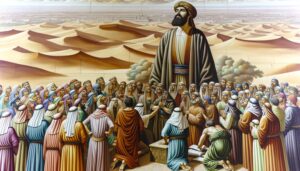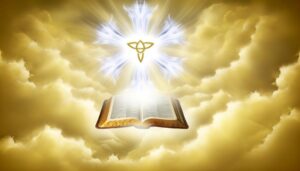Meaning Of 207 In The Bible: Spiritual Insight and Order
The number 207 is not directly mentioned in the Bible, but its significance can be derived through biblical numerology and the principles of Hebrew and Greek gematria. In the Hebrew language, the number 207 corresponds to the word “Or,” meaning light, symbolizing divine revelation and spiritual enlightenment.
Greek associations add dimensions of mystery and hidden divine truths. The components of 207—2 (duality or witness) and 7 (spiritual perfection)—enhance this interpretation, suggesting a holistic spiritual journey.
By exploring these numerical and symbolic layers, one can appreciate the deeper theological implications embedded within biblical texts.

Meaning of 207 in the Bible: Biblical Numerology and Spiritual Significance
| Aspect | Details |
|---|---|
| Number | 207 |
| Direct Mention | Not explicitly mentioned in the Bible |
| Numerology Basis | 2 + 0 + 7 = 9 (biblical number of finality or divine completeness) |
| Related Symbolism | 2 = union/witness, 7 = perfection, 9 = finality/fruit of the Spirit |
| Spiritual Insight | May symbolize a completed spiritual journey or testimony |
| Interpretive Use | Common in prophetic studies or symbolic interpretation |
| Note of Caution | Not a doctrinal number—interpret symbolically, not as absolute truth |
Biblical Numerology Overview
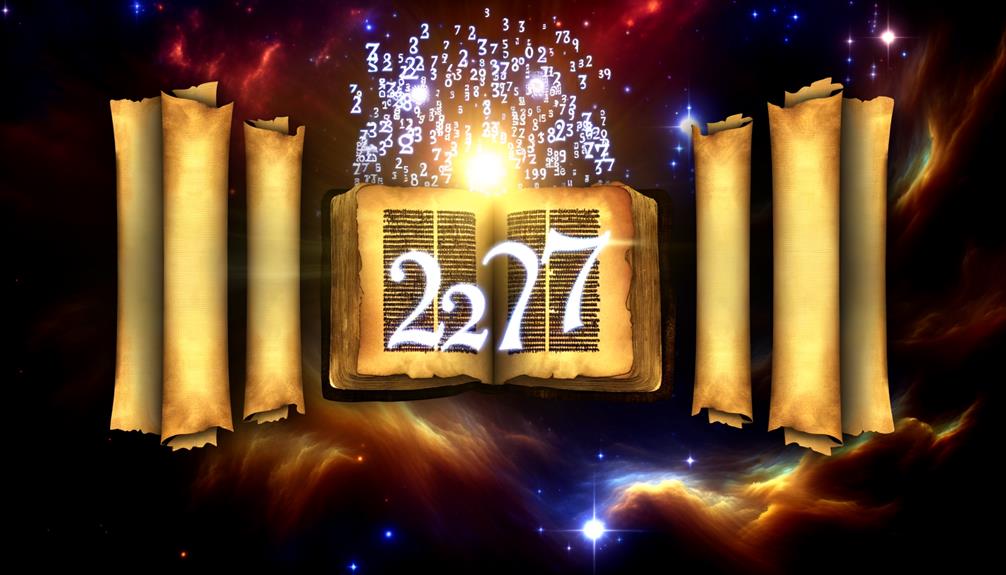
Biblical numerology, a field of study that interprets the symbolic meanings of numbers within the Bible, provides a deeper understanding of scriptural themes and divine messages. This discipline examines numerical patterns and their theological implications to reveal insights into God’s nature and divine plans.
Numbers such as 7, 12, and 40 often recur in biblical texts, each bearing significant symbolism. For example, the number 7 frequently signifies completeness or divine perfection, while 12 represents authority and governance, as seen in the twelve tribes of Israel.
Scriptural References to 207

The number 207 is not explicitly mentioned in the canonical texts of the Bible, requiring a more nuanced exploration of its potential symbolic significance through the lens of biblical numerology and contextual analysis.
While direct scriptural references are absent, understanding the composite numbers and their meanings can provide insight. For instance, the sum of 200 (often associated with divine completeness) and 7 (symbolizing spiritual perfection) could imply a synthesis of these themes.
Additionally, scriptural patterns and events related to these numbers might offer contextual clues. Such an analytical approach invites a deeper theological reflection, urging readers to contemplate how seemingly obscure numbers might subtly weave into the broader tapestry of biblical narratives and theological concepts.
Hebrew and Greek Gematria
Examining the concept of Hebrew and Greek Gematria is essential to understanding the symbolic numerical significance of 207 in biblical contexts.
By analyzing the numerical values of words and phrases within the scriptures, we can uncover deeper spiritual interpretations and insights.
These analyses not only enhance our comprehension of biblical text but also reveal underlying theological themes that are integral to the scripture’s message.
Symbolic Numerical Significance
Frequently, the symbolic numerical significance of 207 in the Bible is explored through the lens of Hebrew and Greek gematria, where each letter corresponds to a specific numerical value, thereby imbuing words and phrases with deeper, often mystical, connotations.
In Hebrew, for instance, the numerical value of 207 is associated with the word ‘Or’ (אור), meaning ‘light.’ This association suggests a profound theological concept: light as divine revelation or spiritual enlightenment.
Similarly, in Greek, the value can be linked to words signifying spiritual or moral truths.
Analyzing these connections requires a contextual and theological understanding of biblical symbolism, as gematria often reveals layers of meaning that transcend the literal text, offering a richer, more nuanced interpretation of scripture.
Biblical Text Analysis
Building upon the symbolic numerical significance, biblical text analysis through Hebrew and Greek gematria reveals intricate layers of meaning within scripture, demonstrating how numerical values can elucidate theological concepts and spiritual truths.
By assigning numerical values to letters, scholars uncover deeper interpretative frameworks for biblical texts. For instance, the Hebrew word רז (Raz), meaning “secret” or “mystery,” has a gematria value of 207, highlighting its connection to divine revelation.
| Hebrew Word | Gematria Value | Greek Word | Gematria Value |
|---|---|---|---|
| רז (Raz) | 207 | μυστήριον | 207 |
| אור (Light) | 207 | ||
| זרע (Seed) | 207 | ||
| λόγος | 373 | ||
| אמת (Truth) | 441 |
This analytical approach emphasizes how gematria can provide a nuanced understanding of scriptural elements.
Spiritual Interpretations
The spiritual interpretations derived from Hebrew and Greek gematria offer profound insights into the underlying messages of biblical texts, inviting readers to explore the divine mysteries encoded within scripture.
In Hebrew gematria, the number 207 corresponds to the word ‘Light’ (אוֹר), symbolizing divine revelation and spiritual enlightenment. This connection suggests an invitation to perceive God’s truth and wisdom.
Similarly, in Greek gematria, the number 207 associates with the term ‘Mystery’ (μ\u03youngιστήριον), emphasizing hidden truths and divine secrets.
By examining these numerical values, theologians and scholars can uncover deeper theological meanings, enhancing our understanding of the Bible’s spiritual dimensions.
Consequently, gematria serves as a bridge between the tangible text and the intangible divine, enriching biblical interpretation.
Symbolic Interpretations
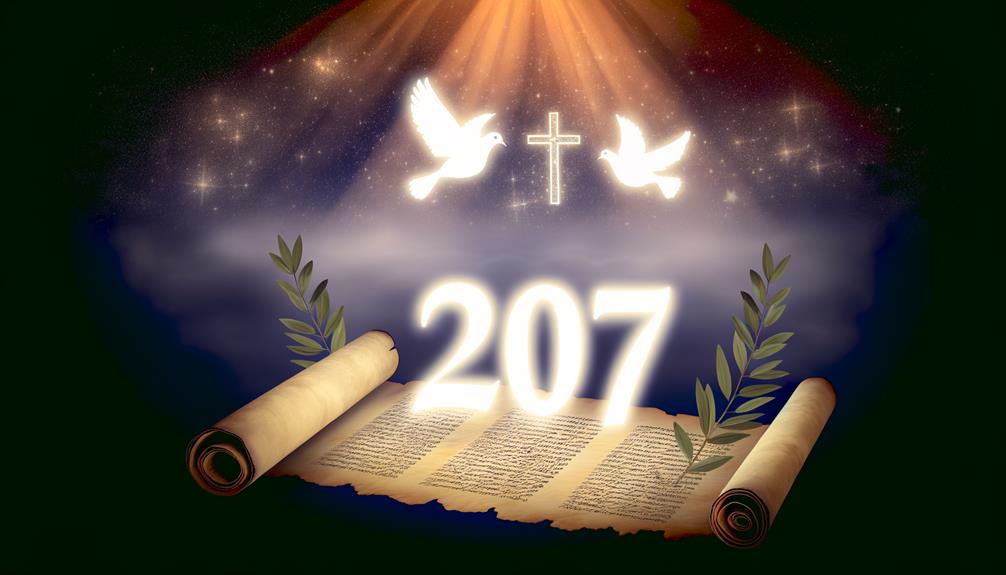
Symbolic interpretations of the number 207 in the Bible often explore its numerical and theological significance, seeking to uncover deeper meanings within scriptural contexts.
Numerically, 207 can be broken down into its constituent parts—2, 0, and 7—each of which holds distinct biblical symbolism. The number 2 often represents duality or witness, while 7 symbolizes completeness and divine perfection. The inclusion of 0 may signify potential or divine eternity.
Theologically, combining these elements might suggest a divine witness to completeness and perfection, pointing towards a holistic spiritual message.
Contextually, scholars may examine specific biblical passages where these themes converge, providing deeper insight into the divine narrative and its implications for believers.
Historical Contexts

Examining the historical contexts in which the number 207 appears in biblical texts can reveal significant insights into its intended theological and cultural meanings.
In ancient Hebrew culture, numbers often held symbolic significance beyond their quantitative value. The number 207, while not overtly prominent, must be analyzed within the narratives and genealogies where it surfaces.
For instance, the genealogical records in the Old Covenant often assign numerical values that reflect deeper spiritual truths or divine order. Historical periods marked by significant events or reigns may also contribute to understanding 207’s relevance.
As a result, comprehending its use requires a nuanced approach, considering historical timelines, socio-political circumstances, and theological implications within the broader biblical narrative.
Connections to Other Numbers
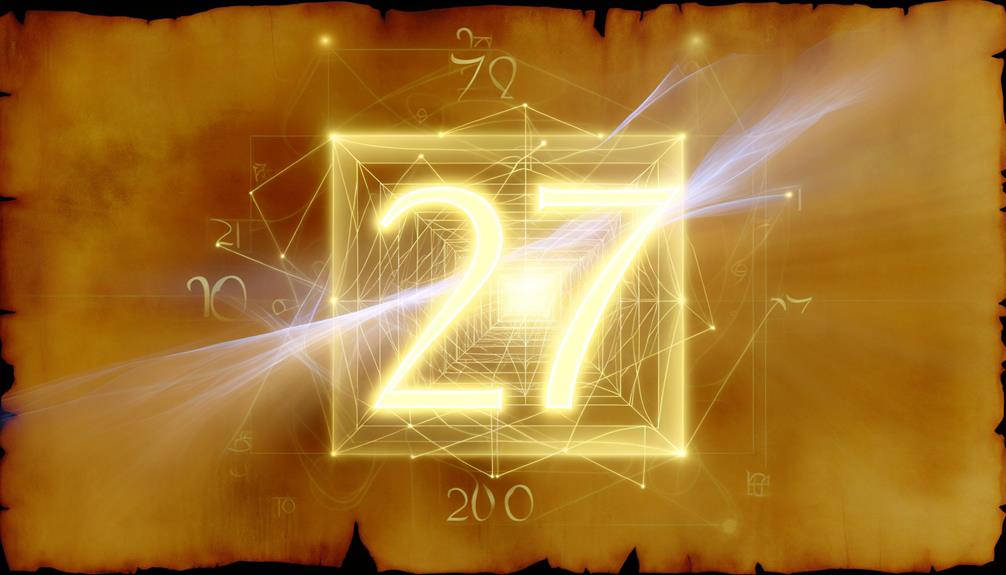
Considering the intricate web of numerical symbolism in biblical texts, one must explore how the number 207 interrelates with other significant numbers to discern its theological and contextual import.
Biblically, numbers such as 7, symbolizing completeness, and 3, representing divine perfection, are often referenced. When examining 207, it is essential to note its composition: 200 (often associated with insufficiency or lack in some contexts) and 7. The juxtaposition of these elements may suggest a journey from deficiency to divine completeness.
Additionally, in gematria, the numerical value of certain Hebrew words can provide deeper insight. For instance, the value of ‘light’ (אור) is 207, indicating a potential connection to divine illumination and enlightenment, offering a richer theological understanding.
Conclusion
The number 207 in biblical numerology intertwines various dimensions of scriptural, gematric, and symbolic interpretations.
While direct references to 207 are scarce, its significance emerges through the study of Hebrew and Greek gematria, revealing layers of theological meaning.
Historical contexts further enrich this exploration, connecting 207 with other numerologically significant numbers, hence offering a multifaceted understanding.
The juxtaposition of these elements underscores the intricate tapestry of biblical numerology, where each number contributes to the holistic theological narrative.

